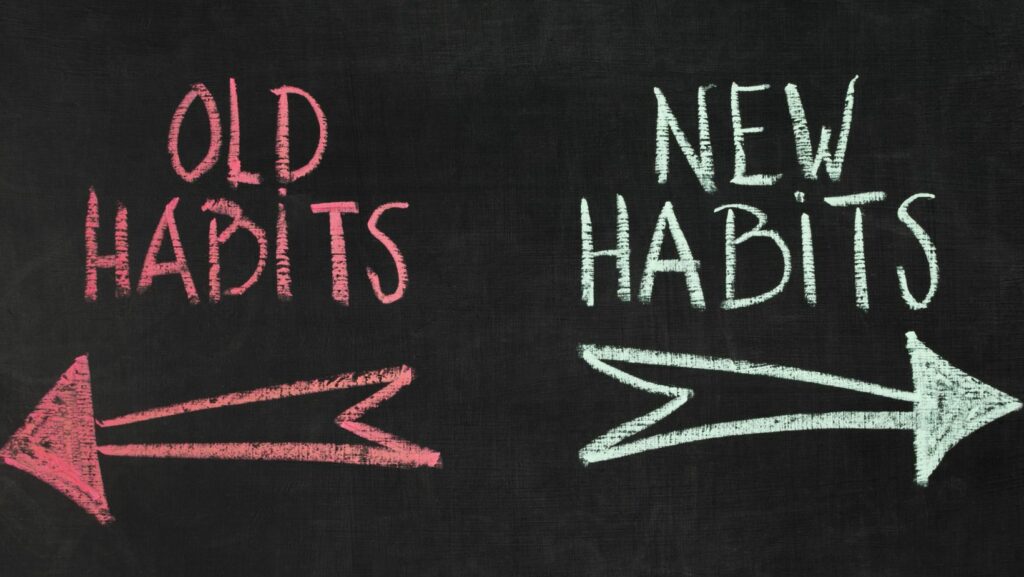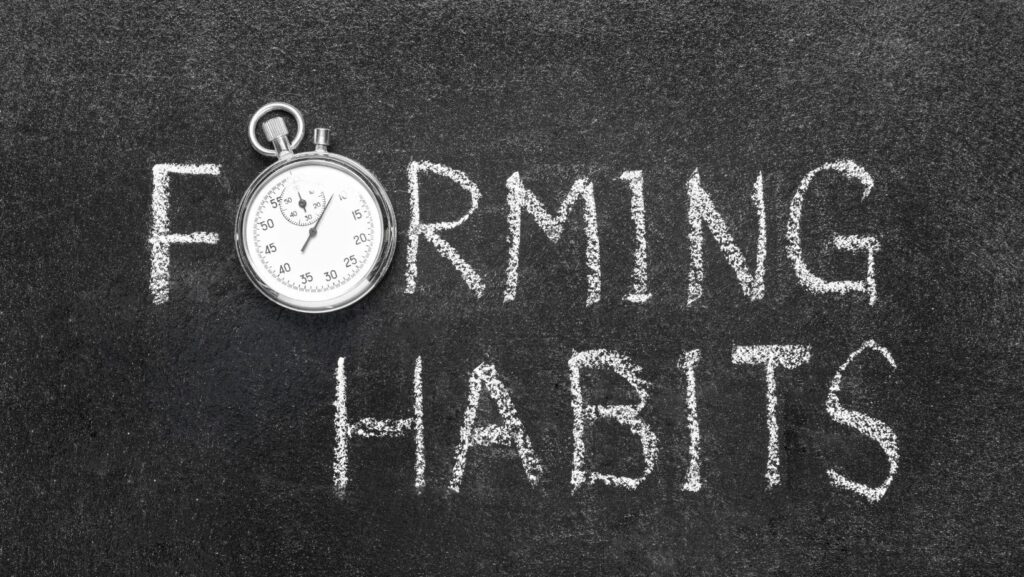Building lasting habits can feel like an uphill battle, but understanding the 3Rs of habit formation can make all the difference. These essential principles—reminder, routine, and reward—provide a simple framework for creating and maintaining positive behaviors. By mastering these components, anyone can transform their daily routines and achieve their goals.
The power of the 3Rs lies in their ability to break down complex behaviors into manageable steps. Whether it’s adopting a healthier lifestyle or boosting productivity, these principles offer a roadmap for success. Embracing the 3Rs not only simplifies the process but also enhances motivation, making it easier to stick with new habits over time.
The 3Rs Of Habit Formation
Understanding the 3Rs of habit formation provides a clear path toward establishing effective habits. The 3Rs consist of:
- Reminder: A reminder acts as a cue signaling the start of a habit. Examples include smartphone alarms, sticky notes, or environmental triggers that prompt action. Consistent reminders enhance the likelihood of initiating a desired behavior.
- Routine: The routine is the actual behavior linked to the reminder. It includes the specific actions taken in response to the cue. For instance, after seeing a reminder to exercise, an individual may engage in a 30-minute workout. Structuring routines promotes habit stability and encourages repetition.
- Reward: A reward reinforces the habit by providing positive feedback. Examples include treating oneself to a favorite snack after completing a workout or feeling a sense of accomplishment after achieving a goal. The reward strengthens the association between the behavior and the outcome, increasing the chances of repetition.
Incorporating these 3Rs creates a powerful framework for habit formation. By focusing on reminders, routines, and rewards, individuals can effectively foster positive habits, leading to sustained behavior change.
The Importance Of Habit Formation
Habit formation significantly influences daily life and overall well-being. Adopting positive habits enhances productivity, improves health, and fosters personal growth.
Benefits Of Building Good Habits
Building good habits offers numerous advantages, including:
- Increased Productivity: Individuals with established routines often complete tasks efficiently. For instance, scheduling regular study sessions enhances focus and retention.
- Improved Health: Healthy habits, such as regular exercise and balanced diets, lower risks of chronic diseases. Consistent physical activity encourages weight management and boosts energy levels.
- Enhanced Mental Well-Being: Positive behaviors, like practicing mindfulness, reduce stress and anxiety. Engaging in daily gratitude journals elevates mood and promotes optimism.
- Skill Development: Habits facilitate mastery of new skills. Regular practice leads to proficiency in areas like language learning or musical instruments.
- Consistency in Goals: Establishing habits supports goal achievement. Small, incremental actions foster long-term success, leading to significant lifestyle changes.
Impacts Of Bad Habits
Bad habits can have detrimental effects on various aspects of life, such as:
- Decreased Productivity: Unproductive habits, like procrastination, hinder task completion. They lead to increased stress and missed deadlines.
- Negative Health Consequences: Poor dietary choices and a sedentary lifestyle contribute to obesity and other health issues. Smoking and excessive drinking worsen health risks substantially.
- Mental Health Challenges: Indulgence in bad habits, such as excessive screen time or negativity, can amplify feelings of depression and anxiety. These habits often lead to social isolation.
- Hindered Personal Growth: Relying on bad habits limits opportunities for self-improvement. Resistance to change creates stagnation, impacting career and personal development.
- Strained Relationships: Bad habits like impatience or irritability affect interpersonal relationships. Frequent conflicts erode trust and create emotional distance.
Recognizing the importance of habit formation helps individuals make informed choices, fostering positive changes and mitigating the impacts of negative behaviors.
The Process Of The 3Rs
The 3Rs framework simplifies habit formation by breaking down each component into actionable steps. Understanding these aspects maximizes effectiveness in building lasting habits.
Reminder: The Trigger
Reminders act as catalysts for habit initiation. They serve as cues that prompt individuals to engage in desired behaviors. Effective reminders include visual prompts, alarms, or routines tied to specific times of day. For example, setting an alarm to meditate each morning or placing a water bottle on a desk reinforces hydration habits. Consistency in using reminders enhances focus and readiness, making it easier to establish routines.
Routine: The Behavior
Routines encompass the specific actions following a reminder. They represent the actual behaviors individuals perform in response to the cue. Establishing clear and manageable routines is crucial for successful habit formation. For instance, after the reminder to exercise, engaging in a 30-minute workout promotes physical health. Keeping routines simple and achievable increases adherence, allowing individuals to build momentum over time. Repetition solidifies these actions into strong habits.
Reward: The Benefit
Rewards provide essential positive feedback that reinforces habits. They create a strong association between the behavior performed and the gratifying outcome. Effective rewards can be intrinsic, such as feeling accomplished after completing a task, or extrinsic, like treating oneself to a favorite snack. For instance, enjoying a healthy smoothie after a workout encourages continued exercise. Consistently pairing rewards with behaviors ensures habits remain attractive and sustainable over time.
Strategies To Implement The 3Rs
The 3Rs framework facilitates effective habit formation by providing actionable strategies. Focusing on reminders, routines, and rewards enhances the likelihood of adopting and maintaining beneficial habits.
Identifying Effective Reminders
Identifying effective reminders involves selecting cues that resonate with the individual. Visual cues, like sticky notes on mirrors or computer screens, reinforce desired behaviors. Setting alarms on smartphones for specific tasks ensures timely initiation. Associating reminders with daily activities, such as brushing teeth or preparing coffee, establishes consistent triggers. By personalizing reminders to fit individual lifestyle preferences, effectiveness increases, leading to better habit adherence.
Creating Positive Routines
Creating positive routines requires establishing clear, manageable actions tied to reminders. Individuals benefit from breaking down larger tasks into smaller, actionable steps. Scheduling specific times for these actions promotes consistency. Maintaining simplicity in routines minimizes resistance, increasing the likelihood of repeat execution. Pairing new routines with existing actions, like stretching after waking or reading before bed, creates natural integrations, reinforcing habit stability. This approach encourages gradual expansion as routines become more ingrained.
Maximizing Rewards
Maximizing rewards necessitates an understanding of what motivates the individual. Rewards can be intrinsic, such as a sense of satisfaction from completing a task, or extrinsic, like treating oneself after achieving a goal. Consistently pairing rewards with desired behaviors strengthens associations, making the habits more appealing. Tracking progress with visual charts or journals brings additional motivation by showcasing growth. Celebrating milestones, no matter how small, promotes a positive feedback loop, reinforcing the continuation of the habit.
Building Lasting Habits
Embracing the 3Rs of habit formation can significantly transform an individual’s approach to building lasting habits. By effectively utilizing reminders routines and rewards one can navigate the complexities of behavior change with greater ease. This structured framework not only simplifies the process but also enhances motivation and commitment.
As individuals recognize the importance of their habits they can make informed choices that lead to positive outcomes. Ultimately the journey toward better habits is a powerful tool for personal growth and well-being. Implementing these principles can pave the way for a healthier more productive lifestyle.



